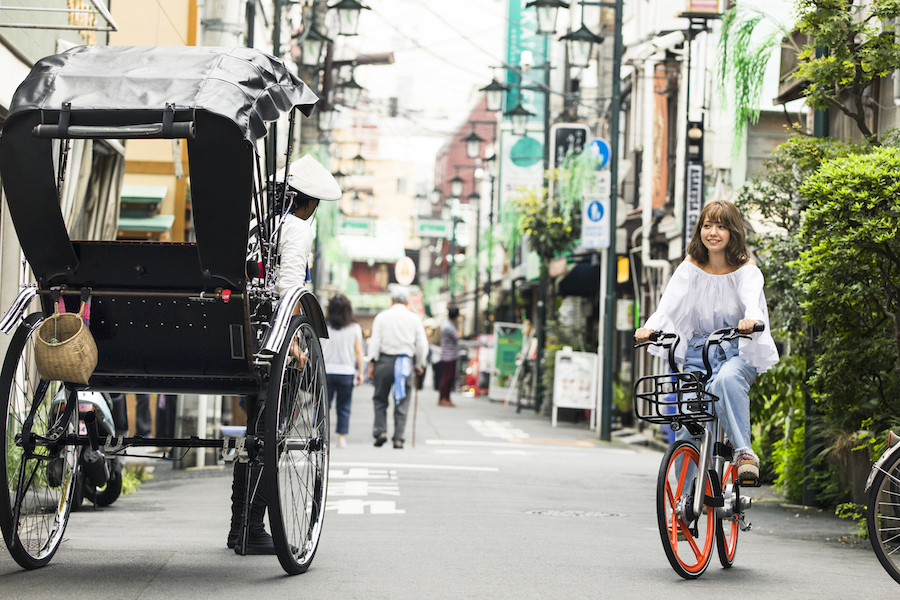Bike-sharing services are a great option for cities wanting to be more environmentally friendly.
They also offer an alternative mode of transport that is convenient and affordable.
China: Bike graveyards and parking nuisance
But the dock-less feature that was intended to make rental bikes readily accessible and convenient to leave behind, has led to some pretty messy results.
In China, it has created public nuisance in cities, clogging up sidewalks and creating massive 'bike graveyards' where millions of broken rental bikes are stacked in piles.
Japan: Cautious approach
Chinese bike-sharing companies are now venturing into the Japanese market, but they are treading lightly as they navigate local laws and cultural sensibilities that are easily offended.
According to a Bloomberg report, Beijing Mobike Technology Co., one of the two largest bike-sharing companies in China, has partnered with Line Corp., Japan's largest messaging app, to offer Line's 71 million users access to Mobike's rental bikes through its platform.
As there are stringent laws against sidewalk clutter in Japan, Mobike has been doing things somewhat differently in Japan:
- It has been careful in supplying the actual bikes. It has taken a cautious approach by starting with 1,000 bikes in the city of Sapporo last year. The service has since expanded to its second city, Fukuoka.
- It tied up with local retailers who are providing the space for designated parking
- It also made sure that it secured the approval of the city government beforehand
[related_story]
Balancing tidiness and scale
While designated parking, along with features such as sensors at the docking stations to make sure the bikes are returned properly help to keep the streets tidy, they make it difficult for companies to expand their reach.
For instance, users of the rental bikes that Docomo Bikeshare Inc. offers are forced to park at the company's own docking stations.
But Docomo's business is limited to fewer than 7,000 bikes spread across 24 cities — far short of the numbers needed to make bike-sharing a mass transit option.
Ofo, Mobike's main competitor, is also planning to venture into the Japanese market.
But it's taking it slow.
Since the company's announcement last August of its partnership with Softbank Group Corp., one of the largest telecom operators in Japan, nothing has happened yet, even though the plan was to start service in Osaka and Tokyo within a month's time.
Xue Ding, Ofo's co-founder, said that if users are only allowed to park in specific places, it'd be like going back to "the previous era of bike-sharing":
Japan may begin with this extreme, just as China started with the other extreme of no parking restrictions. Ultimately, the balance is somewhere in between.
Top image via Mobike
Here's an unrelated but equally interesting article:
You need to get with the times, both for your bank account and your life
If you like what you read, follow us on Facebook, Instagram, Twitter and Telegram to get the latest updates.
